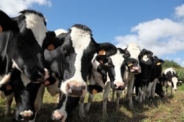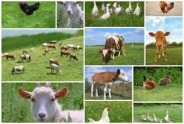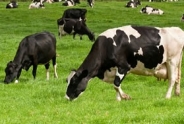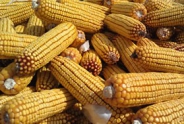Economics of Intensive Wheat Management Practices - Analysis for 2011
John Hanchar, Farm Business Management Specialist
Northwest New York Dairy, Livestock & Field Crops
July 8, 2013
During the September 8, 2011 Advanced Wheat Management Seminar in Batavia, staff from Cornell University and the WNY Crop Management Association as well as a number of producers covered a variety of topics. For that program, we developed economic analyses to examine the benefits and costs associated with an intensive wheat management system compared to a standard or base system.
We based analyses on Donn Branton's experiences and results for the 2011 wheat crop, and estimated the expected change in profit associated with the intensive wheat management system practiced by Donn versus a program of standard practices. The intensive wheat management system can be described as an information intensive system utilizing tissue sampling, additional soil testing, scouting and crop consulting services to make decisions regarding nutrient, pesticides, and other inputs in a controlled traffic (tramline) system. Application method, rates, timing, and location (as they relate to input use) receive emphasis.
Summary of Results
- Intensive wheat management has the potential to increase value of production, income, but additional costs to realize that potential can be relatively large.
- For 2011, analysis suggests that an intensive system outperformed a standard system based upon the estimated change in profit attributed to intensive management. Analysis for 2010 concluded the same.
- Expected changes in profit are sensitive to a number of factors, such as expected price; expected increase in wheat yield; and expected input use decisions given growing conditions and resulting changes in input costs
One factor that producers use to evaluate possible changes in practices is the expected change in profit. Profit equals the total value of production, income minus the costs of resources, inputs used in production. Expected change in profit equals the expected change in total value of production minus the expected change in costs.
Refer to Partial Budget for Profit Table
Analysts construct a partial budget to estimate the expected change in profit associated with a proposed change in the farm business, such as a change from standard to intensive wheat management system.
Results
Expected changes in profit by expected yield increases by expected wheat prices range from negative $119 per acre to positive $60 per acre for 2011 conditions (Table 1). To illustrate some of the details of the analyses, the partial budget for an expected increase in yield of 30 bushels per acre, and $7.65 per bushel wheat price follows.
The intensive wheat management system outperformed the standard system in 2011 based upon the estimated change in profit of about $49 per acre attributed to the intensive management system. The intensive system outperformed the standard system in 2010 as well. However, the expected changes in profit were $126 and $49 and per acre for 2010 and 2011, respectively. Expected changes in total value of production were very similar for the two years – wheat prices were $8.00 and $7.65 per bushel for 2010 and 2011, respectively, while the expected additional yield was 30 bushels per acre for both years.
Refer to Table 1: Expected Change in Annual Profit
However, in 2011 the total additional cost to realize the additional income was considerably higher compared to 2010. Higher prices for some inputs, for example nitrogen, and greater input usage, for example, an additional fungicide application in 2011 compared to 2010, underlie the difference in expected change in profit.
Based upon the 2011 analyses, break even wheat yield increases are approximately 37, 30, 26, 22 additional bushels per acre for expected wheat prices of 5, 6, 7, and 8 dollars per bushel, respectively.
Partial Budget for Profit Table (pdf; 422KB)
Upcoming Events
2026 Forage Congress
January 28, 2026
Nunda, NY
Register to attend 2026 Forage Congress!
2026 NWNY Dairy Day
February 5, 2026 : NWNY Dairy Day 2026
Perry, NY
Sponsorship and Registration OPEN!
The CCE NWNY Dairy, Livestock and Field Crops team will be holding it's 4th Annual "Dairy Day" on February 5, 2026! We will be bringing the latest in dairy research and hot topics to you with this in-person, 1-day conference.
2026 Soybean & Small Grains Congress
February 11, 2026
Henrietta, NY
Participant Registration for the 2026 Soybean & Small Grains Congress NOW OPEN!
Announcements
Follow us on Instagram
See photos and reels of our most recent events and programs!Join us on Facebook!
Follow us on Facebook to get up to date posts about events, workshops and everything NWNY!Add us on LinkedIn!
Connect with us on LinkedIn to get more information about upcoming workshops and programs!





